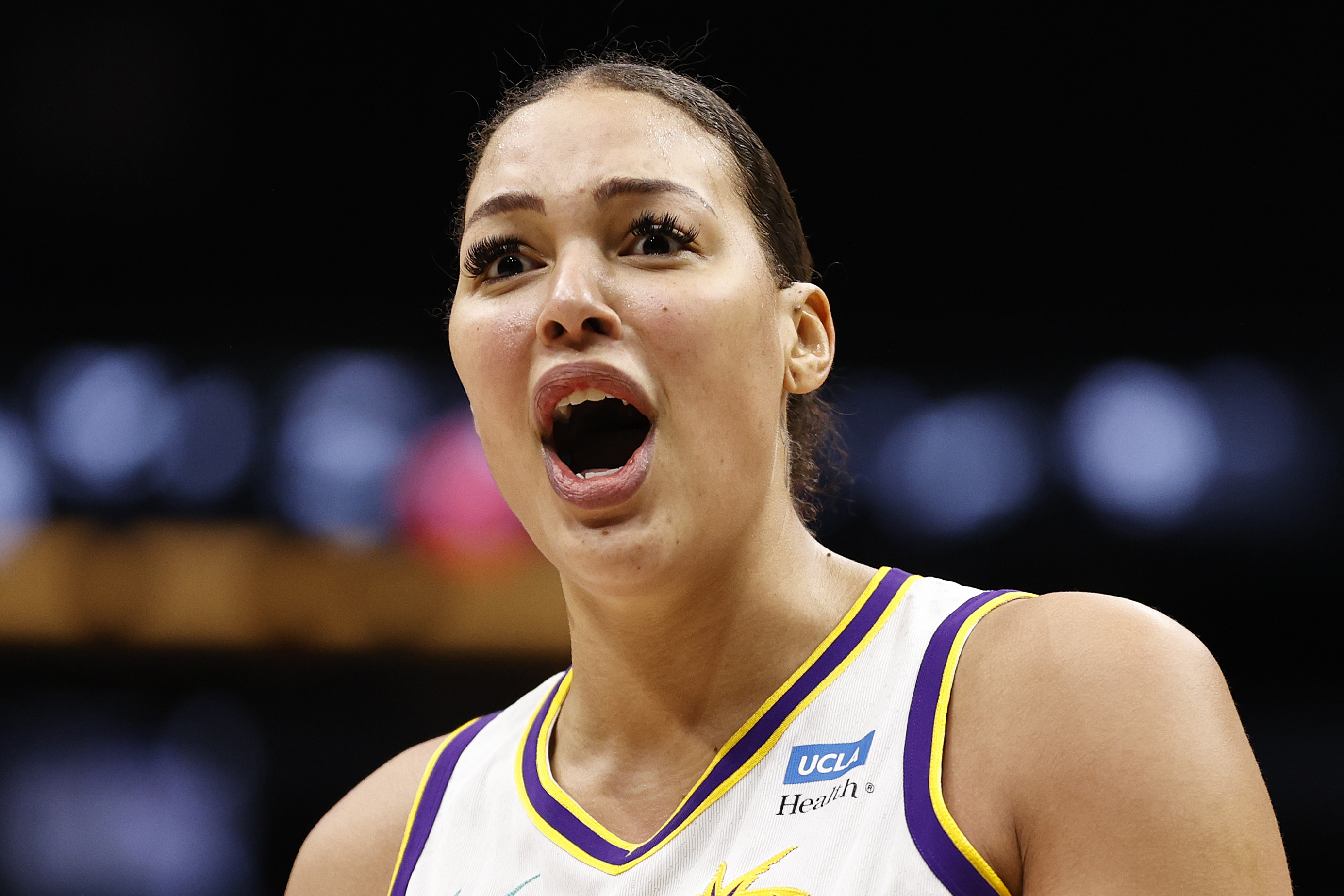Liz Cambage has peaced out. Or as her now-former team put it Tuesday, she has agreed to a buyout with the Los Angeles Sparks. In one sense, the news is surprising. Her own teammates told Chris Haynes they were "shocked at the timing" of Cambage storming out of the locker room Saturday night. In every other sense, it is not. Cambage has left the WNBA twice before. She has a reputation for ... let’s call it professional restlessness. And she has spoken often about her struggles to find fulfillment in basketball.
Through all the tumult of her years in the WNBA, though, one thing seemed true about Cambage: She badly wanted to be in Los Angeles. When she requested a trade from the Dallas Wings in 2019, the Sparks topped her preferred list of destinations. If you had any faith in Cambage to truly settle in somewhere, it was here. In the interviews and profiles that followed her signing with the Sparks in free agency, she said the city and its basketball history had captured her imagination since childhood. “I had been living someone else’s dream, chasing that for a minute,” she told The New York Times. “But now I’ve realized that this has always been my dream, being here in L.A. and playing here.” In the February press conference introducing her as the newest Spark, she said, “I wanted to play here. I wanted to be a star, Hollywood and the lights.”
When she said that, she was sitting beside Derek Fisher, who had amassed an astonishing and totally unwarranted amount of power in the Sparks organization, becoming the team's coach and general manager despite alienating all the Sparks' best players in the three seasons since being hired as coach. Fisher mused about the attention his flashy offseason signing might attract. "It gives us a different interest level, by fans, by media, people are more curious about what our team is gonna look like," he said. "Is it gonna be great? Or is it gonna implode?"
You can ask him what he thinks now; he has plenty of free time! Fisher was fired in early June. Women's basketball site The Next reported that it was an ousting led by a group of players, Cambage among them. The resistance installed Fred Williams, Cambage's former coach in Dallas and one of the few people in the WNBA she actually likes. But that wasn't enough to keep her around. Haynes's report—it includes such literary gems as "Some believe Cambage will use the down time to focus on her modeling career and deejaying, skills that is said to be admirable"—describes a few of Cambage's grievances, all of varying silliness.
Cambage requested to wear the No. 8, but the Sparks informed her the number would be retired to honor DeLisha Milton-Jones, sources say. So she asked for No. 1, but that number belonged to forward Amanda Zahui B.
According to sources, Fisher approached Zahui B. about giving the number to Cambage and she politely declined, explaining the number meant a lot to her. Cambage still wanted the number. Time went by, and sources say management eventually made the call to give the number to the new starting center.
Zahui B. learned her number was given away via social media, sources say.
Last summer, just before the Olympics, Cambage abruptly left the Australian national team, citing her mental health. Reports at the time said she had been involved some kind of incident with the Nigerian national team in a pre-Olympic scrimmage. The full details surfaced only recently, in a story from The Daily Telegraph and in an interview with one of her Opals teammates. Cambage reportedly called Nigerian players "monkeys" and told them to go back to their "third world country." It's possible that news also strained her relationship with her Sparks teammates (though they may have known all about it already: Sparks players Nneka and Chiney Ogwumike were with the Nigerian team last summer).
But it seems like the drama here actually had to do with what was happening on the court in Los Angeles. The Sparks, despite the Cambage signing being a win-now move, are just 12-15 and have looked out of sync all season. Cambage reportedly resented her teammates for not passing to her enough, going so far as to call them out in film sessions. The resentment was mutual. Her teammates didn't like her effort on defense—her conditioning has been a problem for a few years now—and they didn't think she did enough to create passing lanes. Haynes points to Saturday's game against the Aces as the final straw: When Cambage complained again to her teammates during the game, they made a passive-aggressive display of "force-feeding her the ball regardless of what play was supposed to be run." Afterward in the locker room, she told them, “I can’t do this anymore. Best of luck to you guys," and left.
The Sparks were the only team interested in signing Cambage after the Aces let her walk this offseason, which means she will almost certainly never play in the WNBA again. It's strange! The drama aside, she was an unstoppable player at her peak, an elite big in a league where it's hard to stand out as one. But "the drama aside" is much easier typed than lived. As with the many other situations Cambage has left, it does seem like everyone will be happier now.






